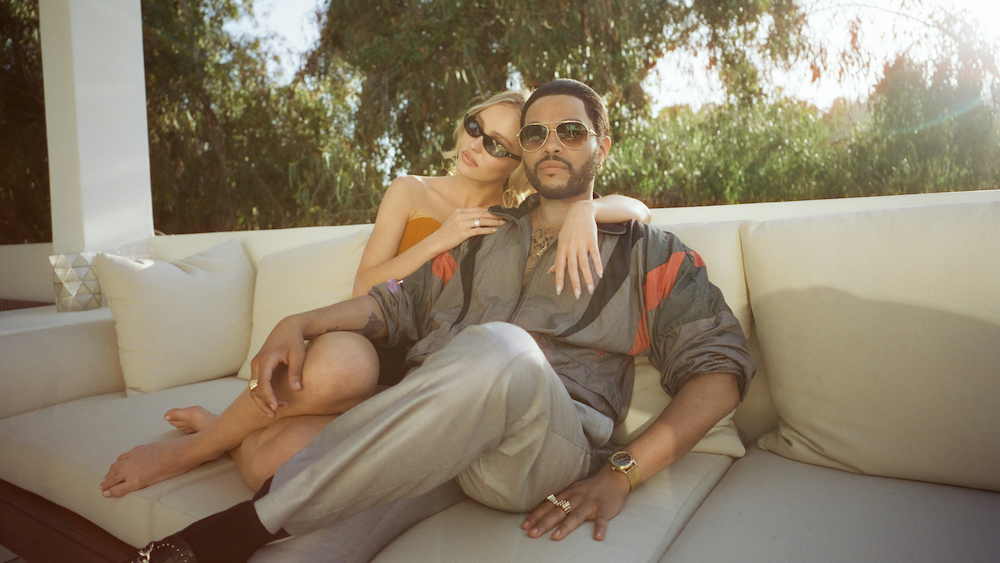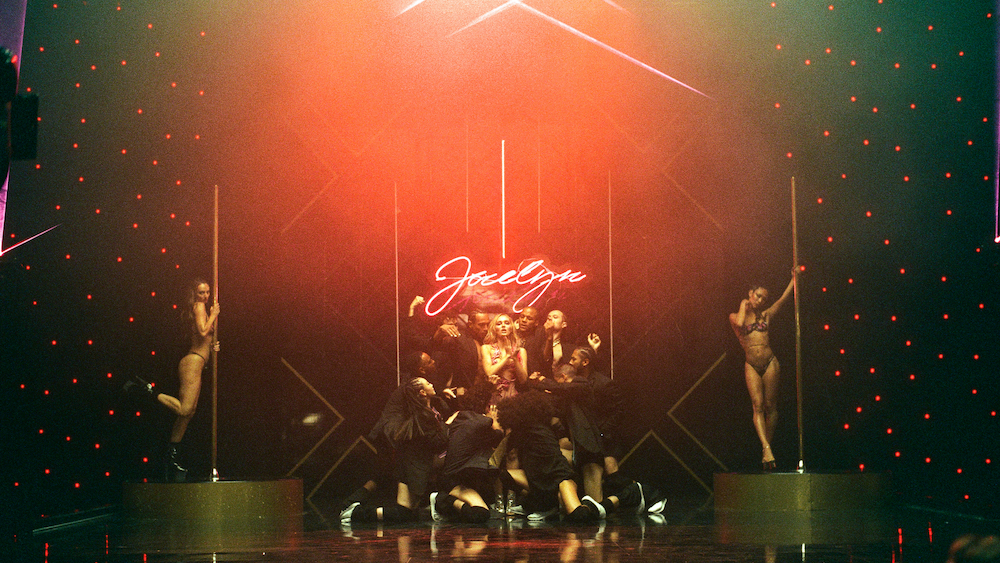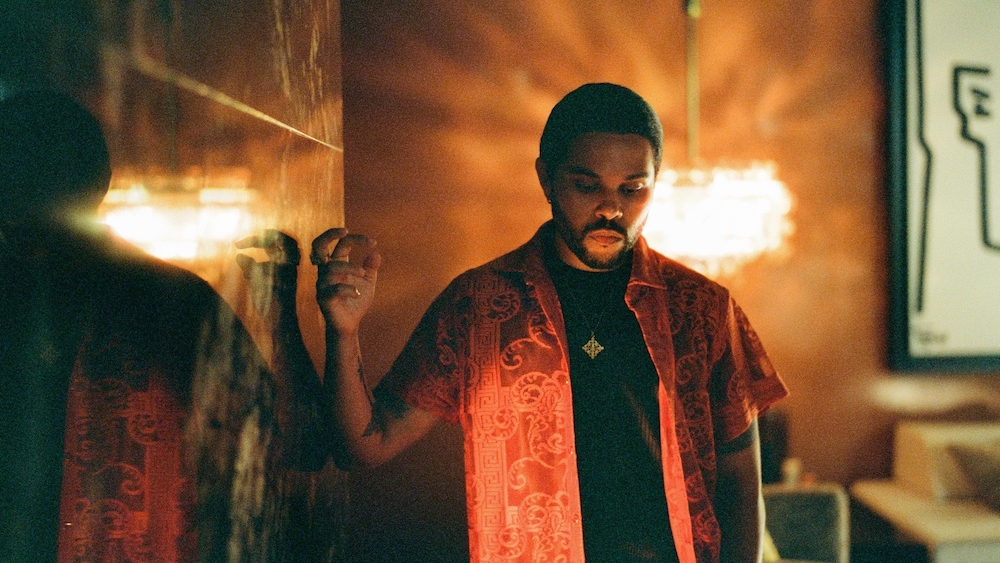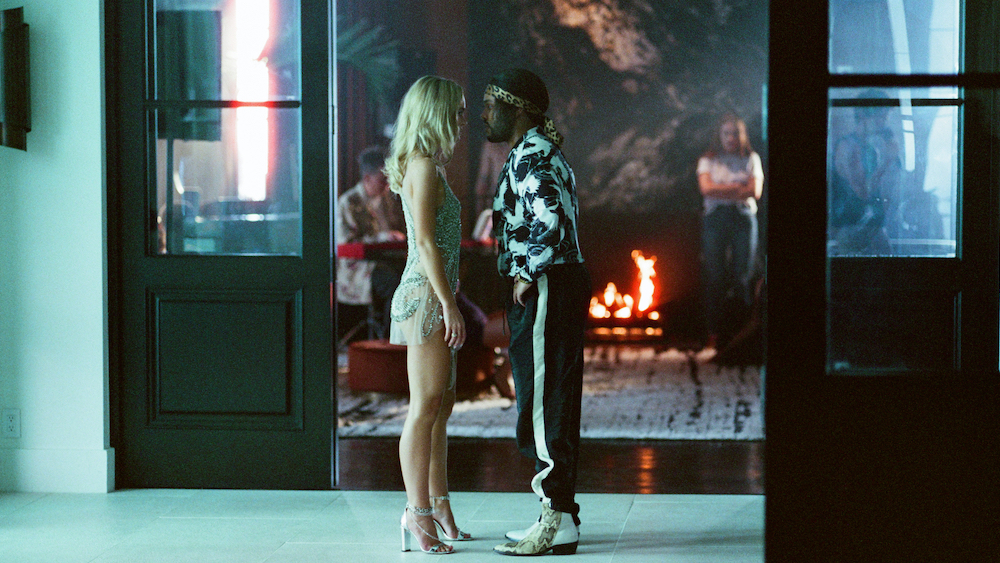
Not since Showgirls, the Paul Verhoeven film, and Fifty Shades of Grey have there been so much button-pushing backlash and controversy surrounding a project until The Idol, the Max streamer, which debuted on June 4. The criticisms have been similar, including a misogynistic execution punctuated by gratuitous nudity, overt sexuality, and soft pornography. It certainly got a lot of viewers’ attention. Whether or not the commentary was warranted was not the intended focus of cinematographer Marcell Rev, who came into the production following a change of vision.
The flooding of news couldn’t be ignored regarding the exit of original director Amy Seimetz which prompted the reshooting and re-envisioning of the five-episode series with Sam Levinson (HBO’s Euphoria) stepping into the director’s chair. Rev addresses what it was like to pick up where DPs Arseni Khachaturan and Drew Daniels left off, having to hit the ground running. He was thankful for the shorthand that exists between him and Levinson, having worked together in Malcolm & Marie, Assassination Nation, and the award-winning Euphoria, winning his own Emmy for “Outstanding Cinematography for a Single-Camera Series (One Hour).”
Co-created by Levinson, Abel “The Weeknd” Tesfaye, and Reza Fahim, The Idol stars Tesfaye and Lily-Rose Depp as a pop star whose mental breakdown leaves her vulnerable to the sordid nightclub impresario (Weeknd), who attempts to reawaken her passions musically and sexually. Recently, Below The Line spoke with Marcell Rev via Zoom video while he was in his hometown of Budapest, Hungary, shooting a film whose details remained a secret.
Below-The-Line: This is your fourth project with Sam Levinson. What is it about your partnership that works so well?
Marcell Rev: I mean, it’s just fun to work with Sam. I think we click in a way that we understand each other. I kind of understand what he’s looking for. He has a pretty strong vision, and I can tap into that. I think we have a good shorthand, and I just like the guy.
BTL: Oh, that’s good! So obviously, this is not news that the vision changed for The Idol when Amy Seimetz left. What did that mean for you?
Rev: I don’t know what the original vision was because I wasn’t around at the time. But, to me, it meant that I stepped in because Sam called me to come into the project, and we had a pretty short amount of time to come up with something that’s strong enough visually and can support this story. We were working in a little different way than we usually do, which allowed us to experiment a little bit and come up with ideas and ways to shoot certain scenes in a way that was new to us. I pretty much enjoyed that part of it.
BTL: What was it like coming into the work later and picking up from the other DPs before you?
Rev: It’s tough, especially on this one because Arseni Khachaturan started it, I think, two or three weeks ago, and then I came in, and I also had to leave early because I was already committed to another project before I took this job, and I had to leave some weeks earlier. So, Drew Daniels came and finished it.
It’s tough because you try to align these visions. I was on the phone with Sam a while before I started, but it’s always when you arrive late that you have to catch up a little bit, and I didn’t have a lot of time to catch up before I started shooting. But that’s why it’s good that I’ve worked with Sam before, because at least I understand what he’s going for pretty easily. I just had to do the homework.

BTL: How would you describe what was different between what the other DPs shot and when you stepped in?
Rev: I don’t know; it was like more natural light. It was more spontaneous in a way. We did way more zooms, for example. We had more flexible setups and a lot of camera movement, some of it handheld. Specifically, I like those kinds of things. I think, as opposed to what we usually have done in the past, we moved our characters around our camera. I think here we moved our camera around our actors, that was the main difference in approach. I think Sam was going for creating a certain reality, trying to capture it in the moment in a way, and coming up with ideas on how to make that still visually coherent, if you know what I mean. So, [to] come up with a style that’s strong and also aesthetically pleasing, but at the same time, allow us to allow the actors to create something real in front of the camera. To be flexible, but at the same time, try to create a clear aesthetic for the show.
BTL: A big part of the storyline were the explicit sex scenes between the Weeknd and Lily Rose-Depp’s characters. How do you feel being behind the camera shooting them? Do you feel like a voyeur in a way?
Rev: I don’t make that distinction. I think there are a lot of scenes, not only the sex scenes, but a lot of scenes in this show that show a vulnerable part of a character or an actor. Empathy is the key to those moments. As a person, you’re there to support an actor and to create a safe and supportive environment where they can do their job in the best way. But I think it’s not very indifferent to any relationship that you have; if you have an office job, it’s kind of the same. But in some moments, obviously, these actors show their vulnerable sides, and you just have to be there as a human being and try to empathize with that.
BTL: Describe to me how the camera captures those types of scenes. Is it the kind of thing where you’re asked to be more provocative?
Rev: I don’t think that we were asked to be more provocative or anything. If there is an explicit scene, for example, it goes back to capturing the reality of something. I think it’s more like having a moment that you’re not supposed to see; you’re feeling that you see a moment that you’re not supposed to see. I think that comes back to a spontaneous moment. Anything that stylistically supports that spontaneous aspect of it is something we were going for. Is it a foreground element? Is it a handheld camera? Is it underexposed film? It’s all different kinds of stylistic tools that we use to create it to make it feel more spontaneous.
BTL: Can you give me an example of the camera movements that illustrate that?
Rev: There are a lot of things when you’re looking through a doorframe; maybe there’s a very sharp light and shadow contrast. In the scene, for example, at the end of episode three, where you have this very sharp light hitting Lily in the middle of the table, it’s just those kinds of aesthetic choices, and some of them are very conscious, some of them are very spontaneous, and some you just come up with on the day because you need something a little stronger or a little visual support for a scene.

BTL: What were the first scenes that you shot?
Rev: The club scenes were the first things I shot. It was tough. I was also sick at the time I came in. I got sick on the plane, so I had to start shooting. It was brutal, but it was a fun shoot at the same time. Sometimes the toughest time is also the best memory.
BTL: Talk about the color palette. It seemed very similar to Euphoria in a way.
Rev: To be honest, in the club scene, we used most of the club’s original lighting, and the reason it was red is because I’ve been to a bunch of clubs and red is a typical color to use in an L.A. club and pretty much all around the world. I think that if something is in common with Euphoria, it is that golden yellowish glow that we used here as well. But The Idol makes way more use of natural light and has more natural skin tones.
I think there’s a lot of white, like in Jocelyn’s house, those white walls and just the exterior of it and the different shades of that white. It’s a very sensitive thing to shoot big plain white surfaces because any color of light can hit it and it shows very differently. The club scenes are very expressionistic in a way, but that’s just the nature of nightlife, I guess.
BTL: You also have lighting where the glow of the fireplace feels like it’s lighting the whole scene.
Rev: Yes, yes. I think for the nights we were very going for this warmer glow. I wanted to keep it cleaner and a little cooler for the daylight scenes, especially in the house, which is 70% of the scenes, I guess.
BTL: So talk about the juxtaposition of shooting indoors versus out outdoors, and the scenes that are shot outside by the pool.
Rev: We embraced the L.A. sun. You try to manicure it a little bit for closeups; you want to try to soften it, try to make it more pleasing, but we were very much playing with the heavy contrast of the California sun and also trying to shoot some of it late afternoon so there’s a more golden hour vibe to it. There’s a lot of shooting from inside the house, but the action takes place outside. There are some scenes on the balcony. For example, in the first scene when they’re shooting her album cover, her team is outside on the porch and she’s inside. A lot of that is moving the camera in and out of the space. We try to use that contrast of the heavy sun outside and then the more shady, softer light of the interiors.
BTL: How does the camera also show the decadence of Los Angeles and meeting these types of affluent characters?
Rev: Some of the glamor and decadence are in the set itself, just shooting that house. It means what it says. Same thing with the record company, same thing with the club. You put stuff in front of the camera that’s already there. I don’t think we had to emphasize that visually. We were not using coral filters or chocolate filters or stuff like that, which could be in the eighties or nineties, as you can see in some of Tony Scott’s movies, which I love. They have those, but we are not going for them because we don’t want to overdo it. I think it was already a lot in front of the camera, so we were not overplaying it with the style.

BTL: So all those sets are all natural. Nothing was built. Where is that white mansion?
Rev: It was dressed, but not built. We didn’t have the money to build anything. That house exists. It’s the Weeknd’s own house, and it’s in Beverly Hills. He lives there.
BTL: That was very generous of him! What other departments besides Sam’s do you liaise with?
Rev: Usually I work very closely with a lot of departments, but on this one, I had to really focus on the work with the gaffer, with the key grip, and with my camera team because I had such a short time to prep it. But I really loved working together with a production designer, the costume designer, and everyone involved in the visuals. I just didn’t have the time for this one to really dive deep into that part. Also, some of it was just available locations, more like set dressing than building stuff. I was focusing on the lighting and camera.
BTL: So do you feel, Marcell, that this series warranted all the controversy behind it and what people have been writing about it?
Rev: I mean, people are writing a lot of things. I try not to focus on that much because if I read and considered all these things that people are writing, I wouldn’t have the time to work on stuff. There’s a lot of controversy; there are a lot of debates in the United States about a lot of things, especially involving sex, and I don’t know a lot of other issues that are political. There is another part of it that’s an aesthetical question, but I don’t know if you dive into that. When do you have the time to live? I’m not interested in that part of the conversation. I’m happy with the job and with the work. I’m just happy to do the next job, and I’m focusing on that one instead of the reception.
BTL: What was most rewarding about this shoot, especially coming in the way you described?
Rev: It was a fun way to approach something that I usually wouldn’t allow myself to do, but it gave me a certain kind of freedom that I enjoyed. I’m the kind of person who likes to obsess on the details, and just the fact that I didn’t have that amount of time gave me the freedom not to obsess on certain things and to just concentrate on the meat of it. I enjoyed that.
You feel a certain kind of responsibility, and you try to do your best, but that can easily turn into obsession with details. But if you don’t have the time to turn that into an obsession, you can focus on the main part. Sometimes you dig so deep into something that you don’t really see the meaning, and with this, I enjoyed the freedom of just focusing on the important things.
The Idol is now available to stream on Max.





